Saturday, August 31, 2019
More on Real World Math
I've occasionally rambled about Real World Math. Using abstract equations works beautifully in the world of abstract equations, but leads us to some serious failures when we believe the world works like math.
The most obvious and most intentional failure is statistics. The mean can be figured in an equation, so we use it instead of the median. In fact the mean is rarely a useful 'handle' on real situations. The median is nearly always a better representation of middle or typical. Economists and Share Value Demons use the mean to persuade us that making Bezos richer is good for everyone. Other stats are just fancy ways of lying. An extremely old observation, but we still ignore it and still use stats as weapons.
A more subtle failure is thresholds and log-ness. Our senses function logly, not linearly, and we sense deltas, not steady states, and we sense things when they run over a threshold. Closed-form math can't handle any of this. A well-written algorithm can crudely approximate it.
In both of the above cases, computers are actually pretty good at handling Real World Math, but we don't use them properly because we don't understand that computers are sorters, not calculators.
Here's a new thought, still sort of tentative and outlined. I was waiting until I could fill in the details, then decided that the best way to fill them in is to publish it first.
= = = = =
We all learn the commutative, associative and distributive properties in math class. These three work together to make abstract calculation a lot easier, and they also work in a computer.
The commutative property is unnatural.
It doesn't work in any aspect of Real World Math. In real situations, the ORDER of addition is always crucial.
Real things, including lifespans, have a limited capacity. When you get near the top of the tank or the end of the lifespan, it's a lot harder to fill the tank or add the next element to the life.
Real tasks have a specific order of labor. You can't decide to do Step 3 before Step 2.
In chemistry and cooking, the order of ingredients is crucial. A recipe says add 0.5 cup of water, stir and beat, then add the other 1.5 cups. Reversing the order ruins the result.
In driving, the order of control inputs is crucial. Say the brake pedal goes down 2 inches at full pressure. When making a stop, you first move 1.5 inches to start decelerating, then the last half inch after you get near full halt. If you first move a half inch and then the last 1.5, you'll never stop at all.
Diminishing returns, or negative returns, are the NORM. Tanh and log handle this reality.
So it's not surprising that neurons reflect reality with log response.
= = = = = START PARTIAL REPRINT:
Look at any war in recent memory. You'll find the war was started by a rich tribe who wanted even more riches (or more macho) ... or by a rich tribe who wanted to bring down a competing rich tribe.
Impoverished people are concrete. They understand how life works. Above all they instinctively understand Diminishing Returns, or in mathy terms the sigmoid curve or tanh function. Life is all about the tanh.
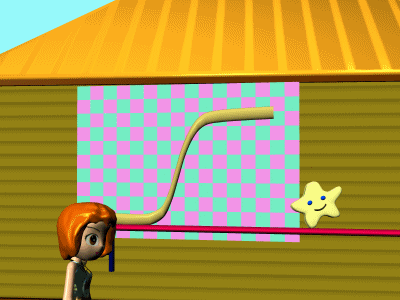 Poor people understand the limits at both ends. Static friction and drag. You have to push the cart for a while before it starts to move; then you can move it faster by pushing harder; but beyond a certain speed extra effort doesn't gain more speed. Diminishing returns.
More broadly, a certain amount of effort is needed to start anything. You have to build a fence around your livestock or plow the fields or set up the fruit stand by the roadside.
Poor people understand the limits at both ends. Static friction and drag. You have to push the cart for a while before it starts to move; then you can move it faster by pushing harder; but beyond a certain speed extra effort doesn't gain more speed. Diminishing returns.
More broadly, a certain amount of effort is needed to start anything. You have to build a fence around your livestock or plow the fields or set up the fruit stand by the roadside.
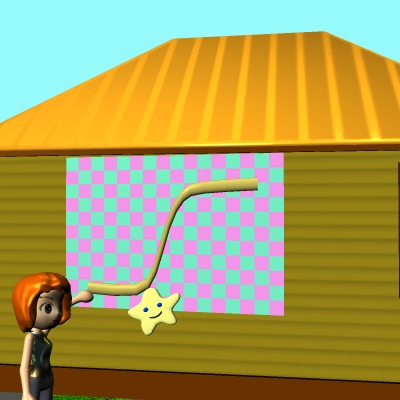 After that, you're in the small linear region, where increasing effort will bring increasing return. Water the crops more, or feed the hogs more, you get more food. Spend more hours selling fruit, you get more money.
After that, you're in the small linear region, where increasing effort will bring increasing return. Water the crops more, or feed the hogs more, you get more food. Spend more hours selling fruit, you get more money.
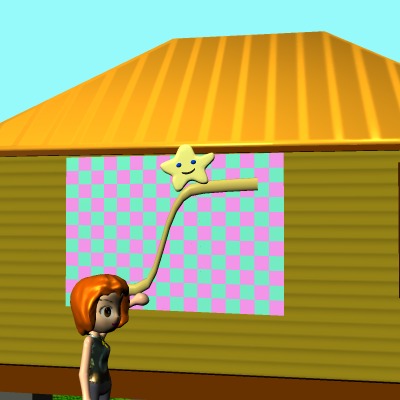 And poor people also understand that beyond a certain point your results will hit a ceiling, a saturation point where the friction negates your effort. So they don't try to quadruple their returns, and they don't try to steal their neighbor's livestock.
And poor people also understand that beyond a certain point your results will hit a ceiling, a saturation point where the friction negates your effort. So they don't try to quadruple their returns, and they don't try to steal their neighbor's livestock.
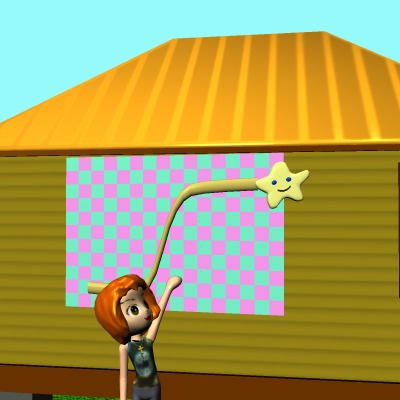 Most importantly, the poor understand the emotional aspects of Diminishing Returns. They know that having more cattle than you can handle is not better than having enough cattle to feed your kids. They sense that enjoyment does not continue to increase after you reach sufficiency.
Rich educated people don't know tanh. They have never planted a crop or turned a wrench or rocked a cradle. They have dealt with life at a clean distance, through lawyers and spreadsheets and Disposable Mexican Servants. They assume that life runs on a straight line.
Most importantly, the poor understand the emotional aspects of Diminishing Returns. They know that having more cattle than you can handle is not better than having enough cattle to feed your kids. They sense that enjoyment does not continue to increase after you reach sufficiency.
Rich educated people don't know tanh. They have never planted a crop or turned a wrench or rocked a cradle. They have dealt with life at a clean distance, through lawyers and spreadsheets and Disposable Mexican Servants. They assume that life runs on a straight line.
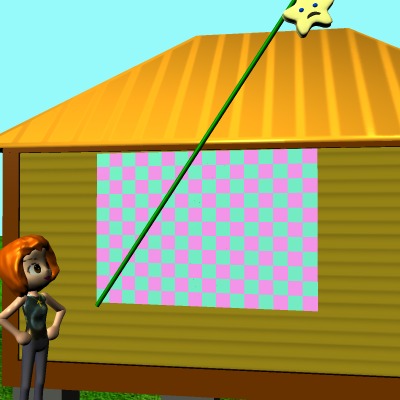 They believe added effort will always yield added income. Most importantly they assume that increased income will continue to yield more enjoyment. Rich educated man thinks: "I have lots of Money and Power and Lebensraum, and I enjoy them. If I have twice as much Money and Power and Lebensraum, I will enjoy them twice as much."
That's why rich educated people make war. They don't know where to stop. They don't know that pleasure needs a foundation and has a roof. They are too fucking stupid to understand tanh.
= = = = = END PARTIAL REPRINT.
The associative property fails for similar reasons. See cooking and chemistry. Grouping ingredients 1 and 2 together gives a different result than grouping ingredients 2 and 3 together.
The distributive property is removed from reality by one step, so it's more safely contained within the abstract world and less likely to distort our thoughts.
They believe added effort will always yield added income. Most importantly they assume that increased income will continue to yield more enjoyment. Rich educated man thinks: "I have lots of Money and Power and Lebensraum, and I enjoy them. If I have twice as much Money and Power and Lebensraum, I will enjoy them twice as much."
That's why rich educated people make war. They don't know where to stop. They don't know that pleasure needs a foundation and has a roof. They are too fucking stupid to understand tanh.
= = = = = END PARTIAL REPRINT.
The associative property fails for similar reasons. See cooking and chemistry. Grouping ingredients 1 and 2 together gives a different result than grouping ingredients 2 and 3 together.
The distributive property is removed from reality by one step, so it's more safely contained within the abstract world and less likely to distort our thoughts.
 Poor people understand the limits at both ends. Static friction and drag. You have to push the cart for a while before it starts to move; then you can move it faster by pushing harder; but beyond a certain speed extra effort doesn't gain more speed. Diminishing returns.
More broadly, a certain amount of effort is needed to start anything. You have to build a fence around your livestock or plow the fields or set up the fruit stand by the roadside.
Poor people understand the limits at both ends. Static friction and drag. You have to push the cart for a while before it starts to move; then you can move it faster by pushing harder; but beyond a certain speed extra effort doesn't gain more speed. Diminishing returns.
More broadly, a certain amount of effort is needed to start anything. You have to build a fence around your livestock or plow the fields or set up the fruit stand by the roadside.
 After that, you're in the small linear region, where increasing effort will bring increasing return. Water the crops more, or feed the hogs more, you get more food. Spend more hours selling fruit, you get more money.
After that, you're in the small linear region, where increasing effort will bring increasing return. Water the crops more, or feed the hogs more, you get more food. Spend more hours selling fruit, you get more money.
 And poor people also understand that beyond a certain point your results will hit a ceiling, a saturation point where the friction negates your effort. So they don't try to quadruple their returns, and they don't try to steal their neighbor's livestock.
And poor people also understand that beyond a certain point your results will hit a ceiling, a saturation point where the friction negates your effort. So they don't try to quadruple their returns, and they don't try to steal their neighbor's livestock.
 Most importantly, the poor understand the emotional aspects of Diminishing Returns. They know that having more cattle than you can handle is not better than having enough cattle to feed your kids. They sense that enjoyment does not continue to increase after you reach sufficiency.
Rich educated people don't know tanh. They have never planted a crop or turned a wrench or rocked a cradle. They have dealt with life at a clean distance, through lawyers and spreadsheets and Disposable Mexican Servants. They assume that life runs on a straight line.
Most importantly, the poor understand the emotional aspects of Diminishing Returns. They know that having more cattle than you can handle is not better than having enough cattle to feed your kids. They sense that enjoyment does not continue to increase after you reach sufficiency.
Rich educated people don't know tanh. They have never planted a crop or turned a wrench or rocked a cradle. They have dealt with life at a clean distance, through lawyers and spreadsheets and Disposable Mexican Servants. They assume that life runs on a straight line.
 They believe added effort will always yield added income. Most importantly they assume that increased income will continue to yield more enjoyment. Rich educated man thinks: "I have lots of Money and Power and Lebensraum, and I enjoy them. If I have twice as much Money and Power and Lebensraum, I will enjoy them twice as much."
That's why rich educated people make war. They don't know where to stop. They don't know that pleasure needs a foundation and has a roof. They are too fucking stupid to understand tanh.
= = = = = END PARTIAL REPRINT.
The associative property fails for similar reasons. See cooking and chemistry. Grouping ingredients 1 and 2 together gives a different result than grouping ingredients 2 and 3 together.
The distributive property is removed from reality by one step, so it's more safely contained within the abstract world and less likely to distort our thoughts.
They believe added effort will always yield added income. Most importantly they assume that increased income will continue to yield more enjoyment. Rich educated man thinks: "I have lots of Money and Power and Lebensraum, and I enjoy them. If I have twice as much Money and Power and Lebensraum, I will enjoy them twice as much."
That's why rich educated people make war. They don't know where to stop. They don't know that pleasure needs a foundation and has a roof. They are too fucking stupid to understand tanh.
= = = = = END PARTIAL REPRINT.
The associative property fails for similar reasons. See cooking and chemistry. Grouping ingredients 1 and 2 together gives a different result than grouping ingredients 2 and 3 together.
The distributive property is removed from reality by one step, so it's more safely contained within the abstract world and less likely to distort our thoughts.Labels: #DeplorableLivesMatter, Blinded by Stats, Real World Math
